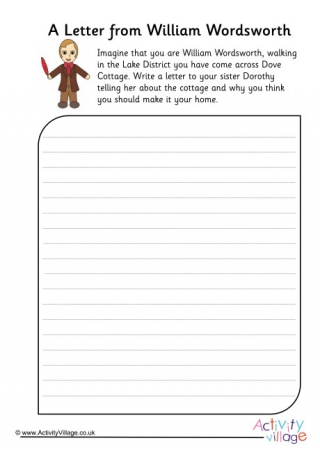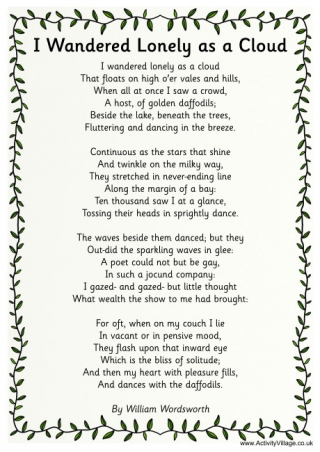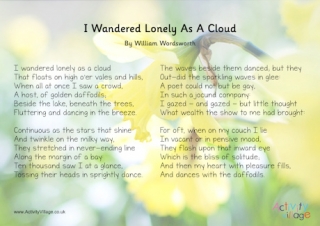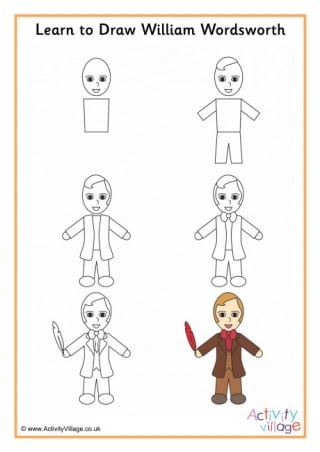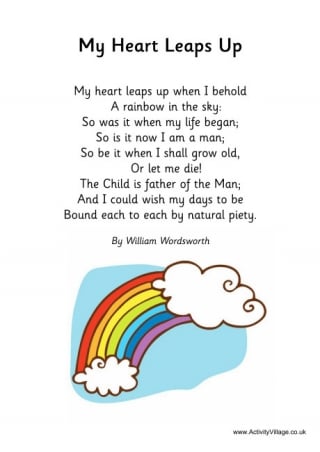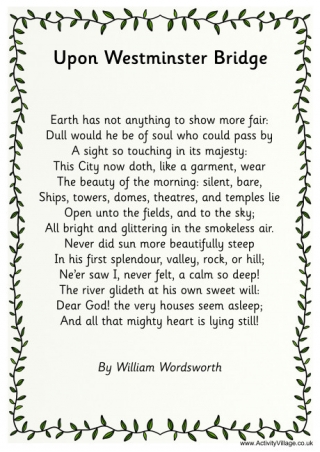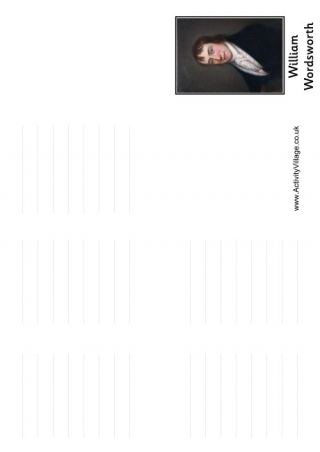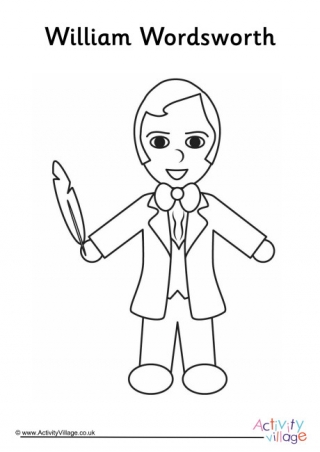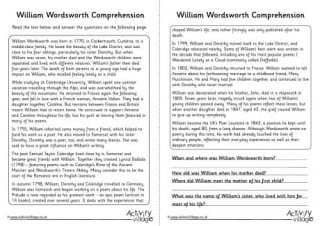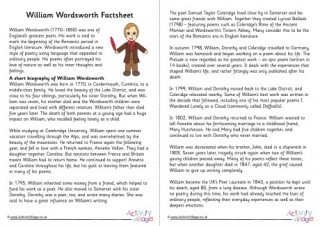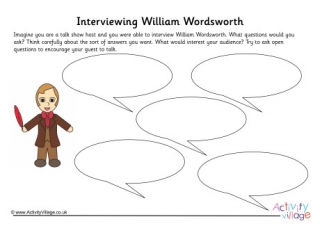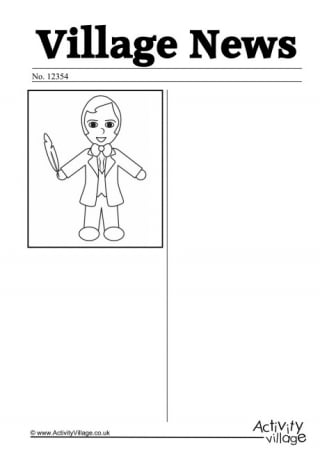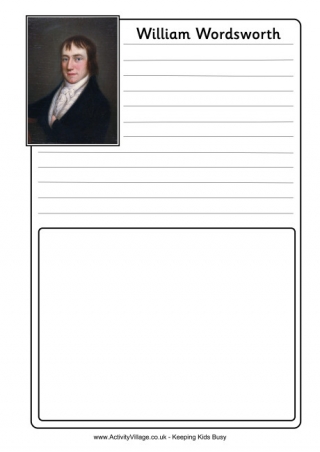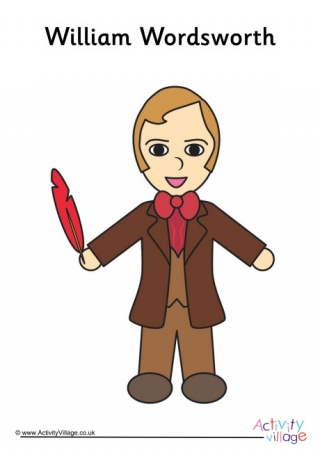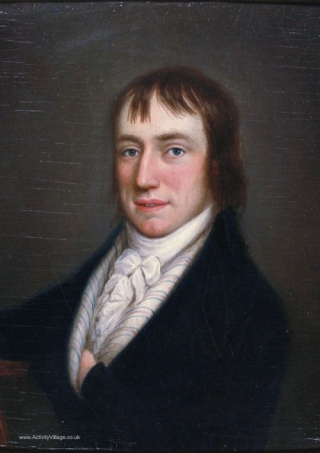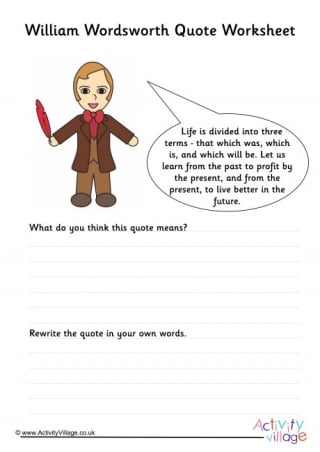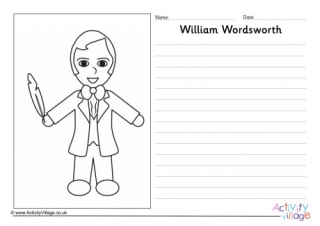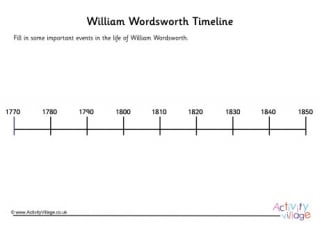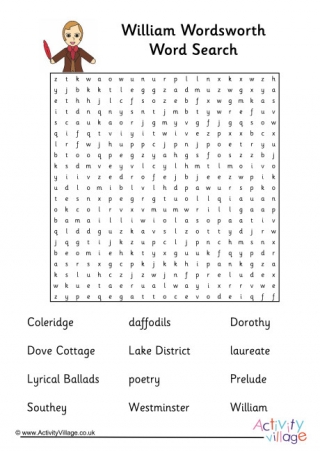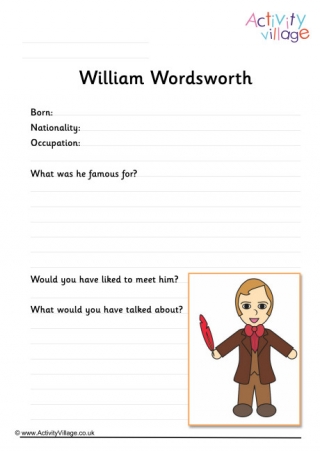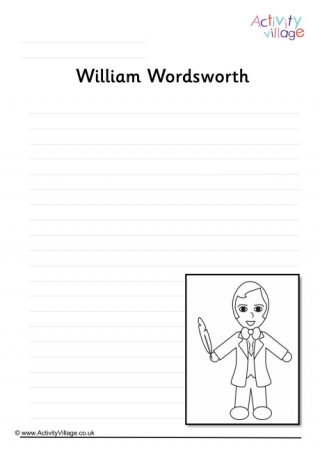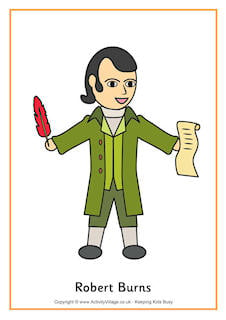William Wordsworth (1770–1850) was one of England’s greatest poets. His work is said to mark the beginning of the Romantic period in English literature. Wordsworth introduced a new style of poetry using language that appealed to ordinary people. His poems often portrayed his love of nature as well as his inner thoughts and feelings. Learn more about the life of this expressive man and use our collection of printable resources below to test your knowledge.
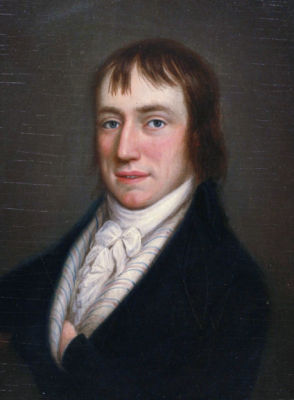
Fun Facts
In 2004, nearly a quarter of a million children in the UK took part in a mass reading of one of Wordsworth’s poems, affectionately known as Daffodils. The record-breaking event (called ‘Words Worth Reading’) was held in celebration of the 200th anniversary of the poem’s creation, to raise awareness of poetry amongst young people and to raise money for a cancer charity. Three years later (the 200th anniversary of the poem’s publication), a tourist board in the Lake District released a rap version of the poem on YouTube, to attract visitors to the area.
Favourite Quotes
“Fill your paper with the breathings of your heart.”
William Wordsworth
“Come forth into the light of things,
Let nature be your teacher.”
William Wordsworth
A Short Biography of William Wordsworth
William Wordsworth was born in 1770, in Cockermouth, Cumbria, to a middle-class family. He loved the beauty of the Lake District, and was close to his four siblings, particularly his sister Dorothy. But when William was seven, his mother died and the Wordsworth children were separated and lived with different relatives. William’s father then died five years later. The death of both parents at a young age had a huge impact on William, who recalled feeling lonely as a child.
While studying at Cambridge University, William spent one summer vacation travelling through the Alps, and was overwhelmed by the beauty of the mountains. He returned to France again the following year, and fell in love with a French woman, Annette Vallon. They had a daughter together, Caroline. But tensions between France and Britain meant William had to return home. He continued to support Annette and Caroline throughout his life, but his guilt at leaving them featured in many of his poems.
In 1795, William inherited some money from a friend, which helped to fund his work as a poet. He also moved to Somerset with his sister Dorothy. Dorothy was a poet, too, and wrote many diaries. She was said to have a great influence on William’s writing.
The poet Samuel Taylor Coleridge lived close by in Somerset and became great friends with William. Together they created Lyrical Ballads (1798) – featuring poems such as Coleridge’s Rime of the Ancient Mariner and Wordsworth’s Tintern Abbey. Many consider this to be the start of the Romantic era in English literature.
In autumn 1798, William, Dorothy and Coleridge travelled to Germany. William was homesick and began working on a poem about his life. The Prelude is now regarded as his greatest work – an epic poem (written in 14 books), created over several years. It deals with the experiences that shaped William’s life, and rather fittingly was only published after his death.
In 1799, William and Dorothy moved back to the Lake District, and Coleridge relocated nearby. Some of William’s best work was written in the decade that followed, including one of his most popular poems I Wandered Lonely as a Cloud (commonly called Daffodils).
In 1802, William and Dorothy returned to France. William wanted to tell Annette about his forthcoming marriage to a childhood friend, Mary Hutchinson. He and Mary had five children together, and continued to live with Dorothy who never married.
William was devastated when his brother, John, died in a shipwreck in 1805. Seven years later, tragedy struck again when two of William’s young children passed away. Many of his poems reflect these losses, but when another daughter died in 1847, aged 42, the grief caused William to give up writing completely.
William became the UK’s Poet Laureate in 1843, a position he kept until his death, aged 80, from a lung disease. Although Wordsworth wrote no poetry during this time, his work had already touched the lives of ordinary people, reflecting their everyday experiences as well as their deepest emotions.
Our William Wordsworth Resources


